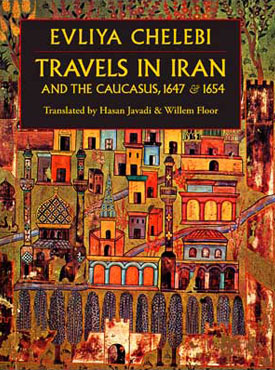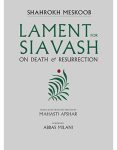About the Book
Travels in Iran and the Caucasus is a stimulating and informative account of an Ottoman administrator’s missions to the region in the mid-seventeenth century. Evliya Chelebi’s travelogue is not simply a diplomatic report, but rather a fascinating exploration of the religious, ethnic, artistic, and even culinary peculiarities of the region. In addition, it offers a fresh perspective on relations between the Ottomans and the Safavids during a period of relative calm in an otherwise stormy relationship. For the first time, the Iranian and Caucus sections of Chelebi’s Siyahat-nameh have been translated from the original Turkish manuscript into English in their most complete form. As such, this book is a unique resource not only for scholars of Safavid Iran but also for those interested in the seventeenth century Middle East in general.
Evliya Chelebi was born in Istanbul in 1611. He was renowned for his recitations of the Koran and was invited by the Ottoman sultan to study calligraphy, poetry, and music at the palace school. Chelebi traveled extensively on behalf of various patrons. His travels took him throughout the Ottoman Empire, Iran, and Europe. After settling in Cairo in 1671/72, he began recording his travels in a total of ten volumes, which were still unfinished at the time of his death in 1684/85.
About the Author
Hasan Javadi was born in Tabriz, Iran to a distinguished family of administrators and scholars. He has taught English and Persian literature at the University of Cambridge, Tehran University and the University of California at Berkeley. He is the author and translator of numerous books, including Satire in Persian Literature, and Persian Literary Influence on English Literature. For Mage he translated Obeyd-E Zakani: Ethics of the Aristocrats and Other Satirical Works. His translations include: Forough Farrokhzad’s Another Birth and Other Poems, and with Willem Floor, Abbas Qoli Aqa Bakikhanov’s The Heavenly Rose-Garden: A History of Shirvan & Daghestan; and Evliya Chelebi’s Travels in Iran and the Caucasus, 1647 and 1654. He edited Letters From Tabriz: The Russian Suppression of the Iranian Constitutional Movement.
Now retired, Dr. Javadi lives in the Washington DC area, where he is working on original scholarship and translations of Persian literature.
Willem Floor studied development economics and non-western sociology, as well as Persian, Arabic and Islamology from 1963-67 at the University of Utrecht (the Netherlands). He received his doctoral degree from the University of Leiden in 1971. Since 1983, Dr. Floor has been employed by the World Bank as an energy specialist. Throughout this time, he has published extensively on the socio-economic history of Iran. His books include: Public Health in Qajar Iran, Agriculture in Qajar Iran, and The History of Theater in Iran, as well as, The Persian Gulf: A Political and Economic History of 5 Port Cities, 1500-1730, its second volume, Persian Gulf: The Rise of the Gulf Arabs, 1747-1792, third volume, The Rise and Fall of Bandar-e Lengeh, the fourth volume, Bandar Abbas: The Natural Gateway of Southeast Iran, and the fifth volume, The Persian Gulf: Links with the Hinterland Bushehr, Borazjan, Kazerun, Banu Ka’b, & Bandar Abbas. He has also published, Travels Through Northern Persia, 1770-1774, Titles and Emoluments in Safavid Iran, and A Social History of Sexual Relations in Iran; Labor and Industry in Iran, 1850-1941; Guilds, Merchants and Ulama in 19th Century Iran; The Rise and Fall of Nader Shah; Games Persians Play. His translations include: Samuel Gottlieb Gmelin’s Travels Through Northern Persia 1770–1774 , and with Hasan Javadi, Abbas Qoli Aqa Bakikhanov’s The Heavenly Rose-Garden: A History of Shirvan & Daghestan; Evliya Chelebi’s Travels in Iran and the Caucasus, 1647 and 1654; A Man of Two Worlds: Pedros Bedik in Iran, 1670–1675, The Persian Gulf: The Hula Arabs of The Shibkuh Coast of Iran, and The Persian Gulf: Dutch-Omani Relations A Commercial & Political History 1651-1806.








